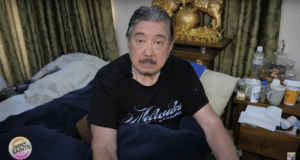BRUSSELS—After a three-year lull, the Philippines and the European Commission are scheduled to restart exploratory discussions that could eventually lead to the signing of a free trade agreement between the country and the 27-member European Union.
Peter K.J. Berz, EC Deputy Head of Unit for Trade Relations with South Asia, Korea and the Association of Southeast Asian Nations, said in a briefing with a group of Southeast Asian journalists here that he was leading a delegation to the Philippines from the EC that would discuss trade and industry matters with the Department of Trade and Industry.
Possible measures to improve trade relations between the European bloc and the Philippines as well as increase investments by European companies in the Philippines are high on the agenda of the half-day meeting scheduled for December 12 in Makati City.
According to data from the EU, the European bloc has become the Philippines’ largest single export market in the past five years, accounting for about 17 percent of total exports. Following the EU is Asean with a share of 17.2 percent followed by the United States (16.8 percent) and Japan (15.6 percent).
Philippine exports to the EU expanded by over 40 percent to 5.4 billion euros in 2010 from about 3.8 billion euros in 2009. Electronics top the list of exports, followed by transport equipment, garments and textiles and agricultural products.
Philippine imports from the EU, on the other hand, grew by more than 26 percent in 2010 to over 3.7 billion euros from 2.9 billion euros in 2009.
Total two-way trade totaled over 9.1 billion euros in 2010, making the EU the Philippines’ fourth-largest trading partner, accounting for 13 percent of total trade. Traditionally, the Philippines has enjoyed a trade surplus with the EU, which in 2010 increased to over 1.6 billion euros.
Berz said that the Philippines, Vietnam, Thailand and Indonesia were the four members of the Asean that the EC—the executive arm of the EU—was considering exploring free trade relations with, as part of Europe’s overall plan to expand its already significant presence in Asia.
The EU this year signed a free trade agreement with South Korea and it came into force in July. It was the first FTA to be entered into by the EU and an Asian country, and negotiations with Singapore and Malaysia are now in full swing to add to the list of trade deals between EU and fast-growing Asian nations.
The EC, which handles trade negotiations on behalf of the member-states of the EU, hopes to conclude the negotiations with Singapore by the middle of next year, to be followed by Malaysia at the end of 2012.
How soon the other four countries can sign similar trade agreements with Korea, Singapore and Malaysia will depend on the level of commitment and ambition of both countries, according to EU officials, considering that the new FTAs pushed by Europe cover more than just trade and industry to specifically include such concerns as sustainable development, environmental impact and even labor practices.
Laos, Cambodia and Brunei were not high on the priority list of countries with whom the EC wants to conduct trade negotiations with considering their small internal markets. Myanmar is also ranked low because of the fluid political and economic situation there.


